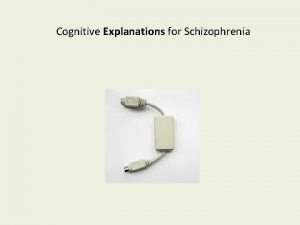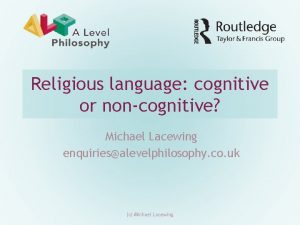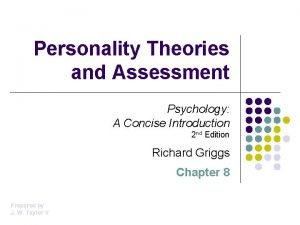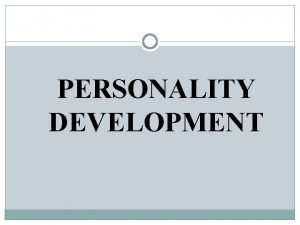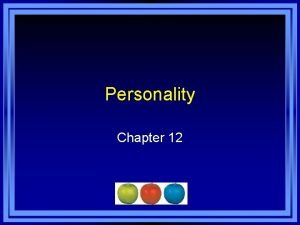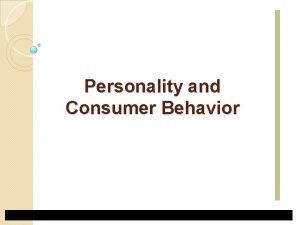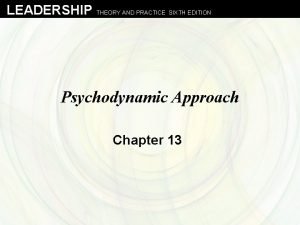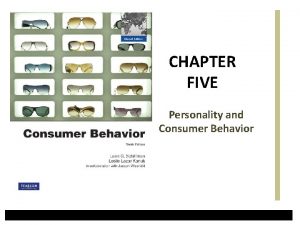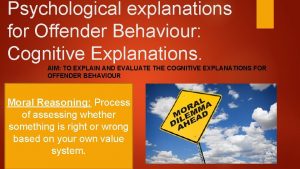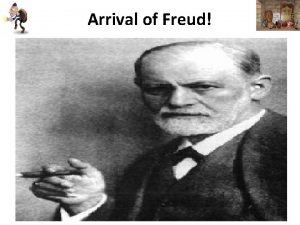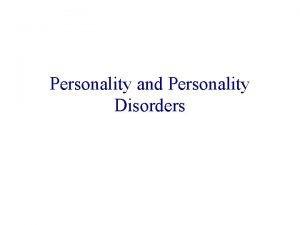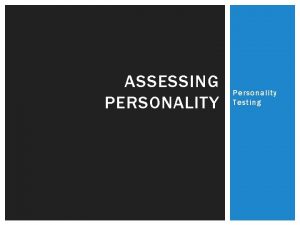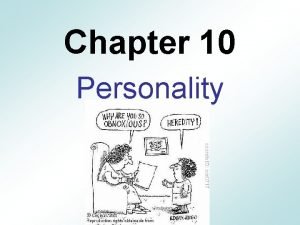Psychological Explanations Forget Freud Cognitive Explanations Personality and










- Slides: 10

Psychological Explanations Forget Freud Cognitive Explanations Personality and Crime IQ and Crime

Cognitive Explanations • HOW we think – Kholberg’s stages of moral devleopment • Pre-conventional, post-conventional – Social Skills • Anger management • Basic skills

Cognitive II • What we think – Rationalizations, “Pro-criminal Attitudes, ” “Criminal Thinking Errors” • Prompts for criminal behavior • Negative Reinforcement

Policy Implications • “Cognitive Behavioral” therapy is the best technology for rehabilitation – Recent study: such programs, when targeting the correct people reduce recidivism anywhere from 10 -60% – Barkan: doesn’t address “structural factors” • But, should we ignore immediate, individual factors?

Personality and Crime • General Personality Traits – MMPI: Bias and Tautology • Newest Test: MPQ – Three Superfactors • • Constraint Negative Emotionality Positive Emotionality CASPI and friends research – Next Step?

Personality II • The “Psychopath” – Hervy Cleckly • Above average intelligence, lying, leeching behavior, lack of remorse, inability to love, impulsive, risk seeking, superficial charm… – Robert Hare’s “Pscyopathy Checklist” (PCL) • Structured Interview tapping these characteristics • Interesting Studies comparing “Psycho” inmates to “non-psycho” inmates – Treatment implications

IQ and Crime—A brief History • Alfred Binet – Series of tasks to identify “learning disabilities” (IQ) – 3 Cardinal Rules • Scores are practical devices • Not for ranking “normal children” • Use to help, not label children – Goddard and others violate all

IQ and crime • As intelligence tests improve, IQ gap shrinks – Sociologists: it will eventually disappear – BUT—it hasn’t (8 -10 point gap, weak effect) • Why related? – Spurious? (evidence against this) – Direct? – Indirect • School Failure • Delinquent Peers • Impulsivity

Barkan’s Critique • Use of small/non-representative samples • Disregard of “structural factors, ” and cannot account for “group differences” – Psychologists not answering macro questions • Causal order remains unclear • Focus on street crimes

Normal and Abnormal • Do psychologists view offenders as “abnormal? ” – Not necessarily (general personality, moral development) • Zimbardo • Milgram – Irony is that evidence from psychologists are used to criticize psychology
 Cognitive explanations of schizophrenia
Cognitive explanations of schizophrenia Cognitive and non cognitive religious language
Cognitive and non cognitive religious language Structure of personality
Structure of personality Freud's theory of personality
Freud's theory of personality Freud's 3 components of personality
Freud's 3 components of personality Sigmund freud psychoanalysis theory
Sigmund freud psychoanalysis theory Freud's 3 components of personality
Freud's 3 components of personality Nature of personality in consumer behaviour
Nature of personality in consumer behaviour Freud personality types
Freud personality types Freud's 3 components of personality
Freud's 3 components of personality Materialistic traits
Materialistic traits
